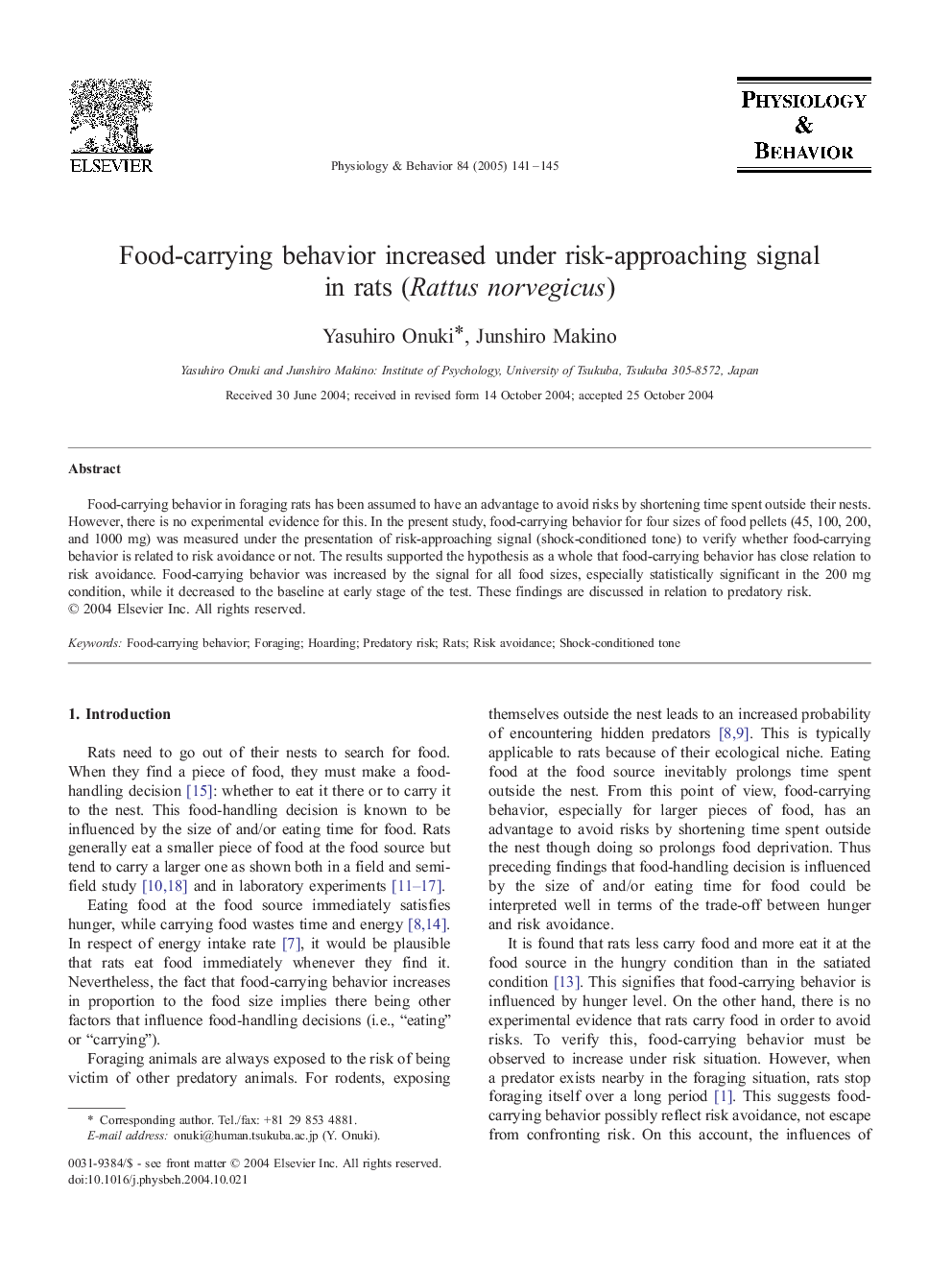| Article ID | Journal | Published Year | Pages | File Type |
|---|---|---|---|---|
| 9149870 | Physiology & Behavior | 2005 | 5 Pages |
Abstract
Food-carrying behavior in foraging rats has been assumed to have an advantage to avoid risks by shortening time spent outside their nests. However, there is no experimental evidence for this. In the present study, food-carrying behavior for four sizes of food pellets (45, 100, 200, and 1000 mg) was measured under the presentation of risk-approaching signal (shock-conditioned tone) to verify whether food-carrying behavior is related to risk avoidance or not. The results supported the hypothesis as a whole that food-carrying behavior has close relation to risk avoidance. Food-carrying behavior was increased by the signal for all food sizes, especially statistically significant in the 200 mg condition, while it decreased to the baseline at early stage of the test. These findings are discussed in relation to predatory risk.
Keywords
Related Topics
Life Sciences
Biochemistry, Genetics and Molecular Biology
Physiology
Authors
Yasuhiro Onuki, Junshiro Makino,
